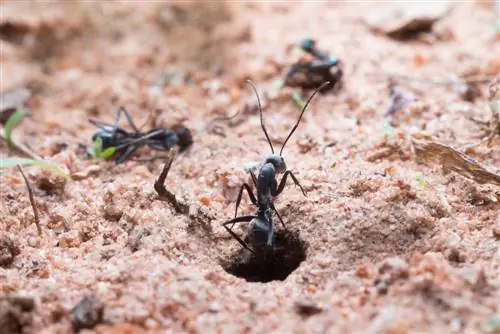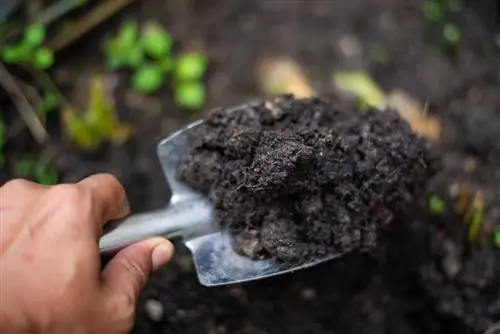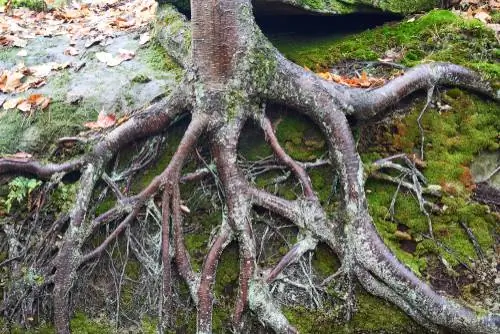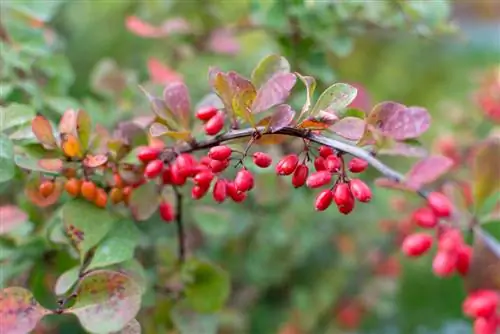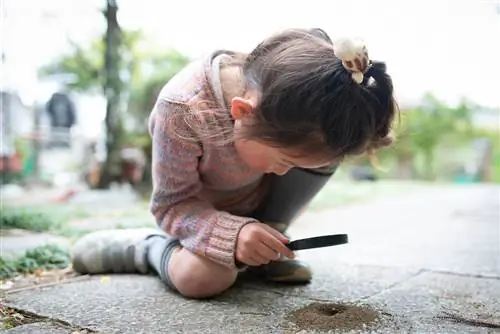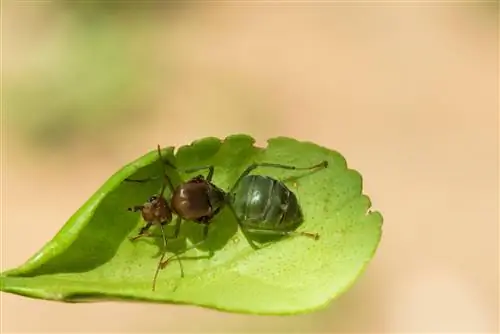- Author admin [email protected].
- Public 2023-12-16 16:46.
- Last modified 2025-01-23 11:22.
Some people call ants a tiny world power because the insects populate nature, cities, gardens and, rather unintentionally, houses and apartments. As fascinating as a large anthill in the forest is, many people are less fond of the little animals in their own garden. But should they be driven away from there and if so, what measures are permitted? We will clarify this in the following article.
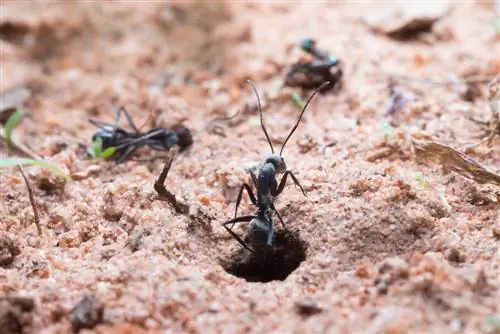
Are ants useful or harmful?
Ants are both useful and harmful: they are essential to the ecosystem as they decompose dead wood, regulate pests and serve as food for other animals. However, they can be unpleasant in the garden and damage plants through aphid infestation.
Important for the ecosystem
The populations of most of the two hundred species of ants native to our country are constantly shrinking. However, ants are significantly involved in numerous cycles in nature and are therefore indispensable for the environment:
- Some species decompose dead wood and thus take on an important step in humus formation.
- Predatory ants regulate the presence of pests.
- The little crawlers themselves are the prey of other animals. For example, birds obtain high-quality protein through the ant larvae.
- They spread the seeds of many wild plants.
- The insects that live underground mix and aerate the earth.
- If all the ants disappeared, the ecosystem would probably collapse.
Ants in the garden: Rather unpopular
If the animals spread out near the terrace or in the flower bed, this is not very pleasant. The ant poison can trigger painful reactions and large colonies of aphids cause long-term damage to the plants. That's why you should try to get rid of your unwanted roommates gently.
There are some environmentally friendly methods to effectively rub the little crawlers:
- Ants have a very sensitive sense of smell. Fragrance-based scattering agents or lavender, cinnamon or marjoram placed on the ant trails prevent the returning animals from finding the burrow again.
- Instead, place a straw-filled flowerpot upside down near the ant colony. The insects will move in here and can be relocated.
- Flood the burrow with a strong jet of water for a few consecutive days.
- You can specifically attract ants using tall glasses with leftover honey or jam. You can simply release the animals you catch somewhere else.
Tip
If possible, avoid using methods such as pouring boiling water over them or laying out bait boxes. The ants then die reliably, but these methods are not ecologically compatible. We therefore strongly advise against it.

